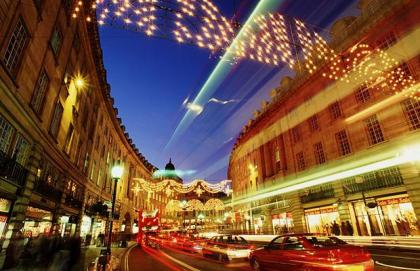Mix of Festive Feasts in the UK and Ireland English Schools
As the days grow shorter and the nights grow colder in our English schools in the UK and for also those studying English in Ireland, they know that Christmas is just around the corner with frantic shopping sprees and endless queues to find the perfect presents for everyone. In this article, we explore the traditions of the UK and Ireland and what they have in store for the festive season!
Bonfire Night (5th November)
This is an occasion that marks the day of the Gunpowder Plot, where fireworks and sparklers are shared with friends and family. Originally as a day to burn effigies of parliament members, but nowadays a bonfire is usually preferred!
Schools and public places often hold fireworks displays but the health and safety guidelines can be strict, especially on sparklers.
Hanukkah (25th Kislev – Autumn month between Nov- Dec)
Hanukkah, or the Festival of Lights, is a celebration over 8 days that commemorates the rededication of the Holy Temple in Jerusalem during the Maccabean Revolt.
It is celebrated by lighting the nine branched Menorah – a very special candelabrum. Each subsequent branch is lit each night. An extra light called the Shamash is also lit each night in order to light the others.
Typical Hanukkah foods include potato pancakes, jam filled doughnuts and fritters.
St Andrews Day (30th November) – Patron Saint of Scotland
For those learning English at our school in Scotland, St Andrews Day usually falls on a bank holiday, where the Flag of Scotland or the Saltire is flown. In some places of Europe, women are traditionally known to drop hot lead or wax into cold water to divine a shape that would relate to their future husband’s profession!
Christmas (25th December)
The traditions of Christmas in the UK usually consist of decorating a tree in the living room, hearing endless re-runs of carols and festive songs from your doorstep (carollers), shopping centres and carol services in church. Attending a midnight mass is common on Christmas Eve, as well as putting presents under the tree to be opened the next morning. Turkey with all the trimmings is usually the dish of the day with goose or duck at a close second (Nut roast is the common main for vegetarians). This is traditionally accompanied with roast potatoes, vegetables and figgy pudding for desert.
Boxing Day (26th December)
The mysteriously named Boxing Day (where there are several theories including the customs in Victorian times for trades men to collect Christmas “boxes” or gifts in return for reliable service) is recognised and celebrated in many parts of the world including the UK, Australia, Canada, Ghana, New Zealand, Hong Kong, Nigeria and Kenya etc. In South Africa, it’s called the Day of Good Will. It is a recognised public holiday and is usually the calling of many shop-hungry customers with Boxing Day sales.
St. Stephen’s Day (26th December) – Ireland
This is a Christian Saint’s Day commemorating St. Stephen, the first Christian martyr. As a public holiday in many places in Europe (notably Ireland, Catalonia, Austria, Croatia, Germany, Denmark etc.), it is known as Day of the Wren in Ireland. An effigy of a wren or even the bird itself in a cage is traditionally carried around from house to house, accompanied by singing and dancing.
Burns Night (January 25th)
This is the celebration in Scotland of the poet Robert Burns, whose famous works include A man’s a man a’ all that and Address to a Haggis. The latter is said as the Haggis is brought out for the main meal (Sheep’s organs minced with stock and traditionally simmered in the animal’s stomach!). There are also recitations of Robert Burns’ poetry– whether a serious or comic selection - and then two toasts are drunk to the “lassies” and “laddies” separately. Each toast follows the other, addressing each side of the room. The speech can be amusing but should never offend!
Did you know?
Robert Burns’ arguably most famous work is Auld Lang Syne, which is now accompanied by song as an extremely popular New Year’s anthem.
Enjoyed the blog? Why not become a part of it by joining one of our world-class English language Schools today? Kaplan International Colleges (formerly known as Kaplan Aspect) have been providing International students, like you, with the learning opportunity of a lifetime for over 40 years. Take a look at our website, Kaplan International Colleges, to see what our English courses could do for you.

